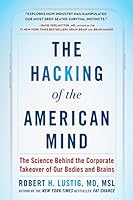Sublime
An inspiration engine for ideas

In medicating ourselves to adapt to the world, what kind of world are we settling for? Under the guise of treating pain and mental illness, are we rendering large segments of the population biochemically indifferent to intolerable circumstance? Worse yet, have psychotropic medications become a means of social control, especially of the poor,
... See moreAnna Lembke • Dopamine Nation: Finding Balance in the Age of Indulgence
Quote from After Babel:
... See more“Another mistake is believing that our children are more advanced than others in terms of the strength of their character; unfortunately, our values are not passed through our genes. Despite our efforts to train our teens to “do the right thing” on their screens, teens are not gifted with the willpower needed for social

Two Professors Found What Creates a Mass Shooter. Will Politicians Pay Attention?
Melanie Warnerpolitico.com
Research on the long-term effects of psychiatric medications reported by the Director of the National Institute of Mental Health in 1996 reveal that they compromise brain function rather than enhance it (Hyman 1996).
Carlos Appel • Spiritism and Mental Health: Practices from Spiritist Centers and Spiritist Psychiatric Hospitals in Brazil
(Sasha Shulgin, who died in 2014, was a brilliant chemist who held a DEA license allowing him to synthesize novel psychedelic compounds, which he did in prodigious numbers. He also was the first to synthesize MDMA since it had been patented by Merck in 1912 and forgotten. Recognizing its psychoactive properties, he introduced the so-called
... See moreMichael Pollan • How to Change Your Mind: The New Science of Psychedelics
The most prominent American child psychiatrist, Joseph Biederman of Harvard Medical School and Massachusetts General Hospital, considered the undisputed “inventor” of childhood bipolar disorder—which arguably triggered both the bipolar epidemic in children and their treatment with antipsychotics—had received over a million dollars in payments from
... See more